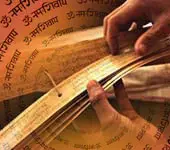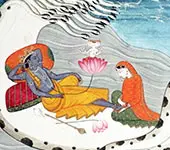Recommended for you
The Veda mantra Yaschhandasamrushabho vishwaroopaha chanted in Vedic Gurukuls for studies explained
 Click here to know more..
Click here to know more..
When to start construction of a house?
 Click here to know more..
Click here to know more..
Hayanana Panchakam

उरुक्रममुदुत्तमं हयमुखस्य शत्रुं चिरं जगत्स्थितिकरं व�....
Click here to know more..
Children's Section
Parenting
Click on any topic to open
- 35 Fundamentals Of The Growth Of A Child
- 34 Children Will Be Healthy, Well Behaved, And Intelligent If These Rules Are Observed
- 33 About Moral Education in Sanatana Dharma
- 32 Samskaras Bring Divine Qualities Into The Child
- 31 How To Teach Children Good Habits
- 30 Spirituality Should Be 24 X 7
- 29 Teaching Children Value Of Money
- 28 If you stop growing then you are not living anymore
- 27 How you should instill good qualities in children
- 26 Choosing the Right Career Path for Your Child – What You Should Know
Please wait while the audio list loads..
30
Ganapathy
Shiva
Hanuman
Devi
Vishnu Sahasranama
Mahabharatam
Practical Wisdom
Yoga Vasishta
Vedas
Rituals
Rare Topics
Devi Mahatmyam
Glory of Venkatesha
Shani Mahatmya
Story of Sri Yantra
Rudram Explained
Atharva Sheersha
Sri Suktam
Kathopanishad
Ramayana
Mystique
Mantra Shastra
Bharat Matha
Bhagavatam
Astrology
Temples
Spiritual books
Purana Stories
Festivals
Sages and Saints
26
15
13
Copyright © 2024 | Vedadhara | All Rights Reserved. | Designed & Developed by Claps and Whistles
